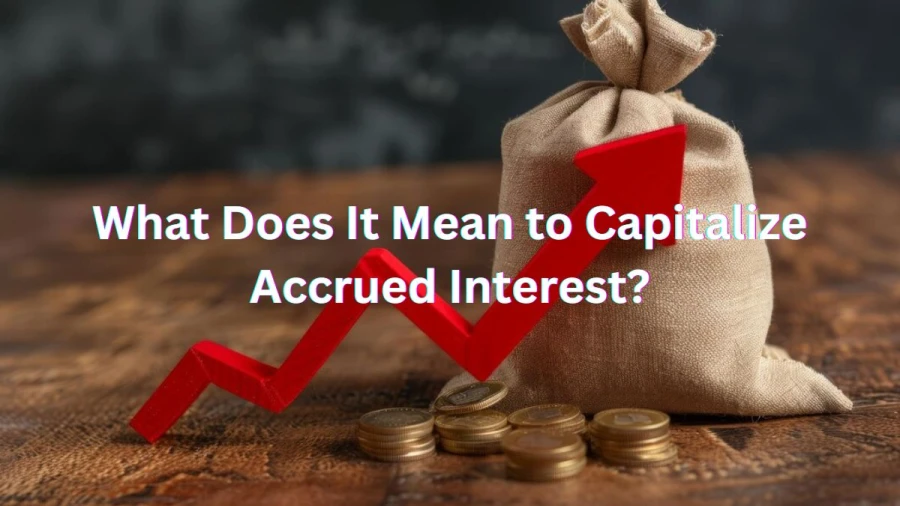
What Does it Mean to Capitalize Accrued Interest?
Capitalizing accrued interest means adding any unpaid interest to the total amount of a loan. This helps to include all interest in the overall sum owed or invested.
by S Samayanka
Published Apr 11, 2024 | Updated Apr 11, 2024 | 📖 3 min read
What Does It Mean to Capitalize Accrued Interest?
Accrued Interest is the amount of unpaid interest that is given by the company on a loan or long-term asset. A business can determine accrued interest by multiplying the entire loan sum by the number of days since the company's previous payment and dividing the stated annual interest rate by 365.
Captilazation means adding up interest in the total rather than making separate payments for the interest, you allow it to be included in the overall amount that you have invested or owe.
So, capitalizing accrued interest means adding up the total amount of unpaid interest to the actual amount of the long-term asset or loan.
What is the Difference Between Accrued Interest and Capitalized Interest?
Basis |
Accrued Interest |
Capitalized Interest |
|
Definition |
Interest that has been earned but not yet been paid |
Interest added to the total cost of a long-term asset or loan balance |
|
Origin |
It occurs between payment periods |
It occurs when interest is added to the principal balance |
|
Treatment |
Can be expensed immediately or capitalized depending on accounting policy |
Capitalized according to accounting standards, not immediately expensed |
|
Financial Statement |
It appears on the income statement |
It appears on the balance sheet |
|
Calculation |
Calculated based on accrued days since the last payment |
Added in the total cost of the asset or loan balance |
|
Balance Sheet |
Not included in asset or liability balances |
Increases the amount of the asset or loan balance |
|
Purpose |
Represents a liability to pay in the future |
Reflects the cost of financing a long-term asset or project |
How Does Capitalized Accrued Interest Work?
Here is an example for you to have a better understanding of how capitalizing on accrued interest works:
Imagine that you have borrowed $100 from someone, and in return, they ask you to return the money with some interest. If you don't pay the interest back immediately, it does not disappear; it keeps getting added to the amount you owe them.
The amount you borrowed could be $100, and after a month you should pay $105; if you don't pay, it gets added to the original amount, which is $100, so when you pay it back, you should pay it as $105. This process of adding the unpaid interest to the original amount you borrowed is called "capitalizing accrued interest."
What are the Uses of Capitalized Accrued Interest?
The uses of capitalized accrued interest are:
- Capitalized accrued interest can be used to finance long-term projects.
- By capitalizing accrued interest, the value of the long-term asset on the balance sheet increases.
- Accrued interest is capitalized to ensure that all purchase expenses are correctly recorded on the balance sheet.
- The balance of the loan or investment is shown clearly on the balance sheet when capitalized accrued interest is included.
What Does It Mean to Capitalize Accrued Interest - FAQs
1. What is accrued interest?
Accrued interest is unpaid interest on a loan or asset.
2. How do you calculate accrued interest?
Multiply the loan amount by the days since the last payment and divide by 365.
3. What does capitalizing interest mean?
It is adding unpaid interest to the total loan or asset amount.
4. When is accrued interest expensed?
It depends on accounting policy.




